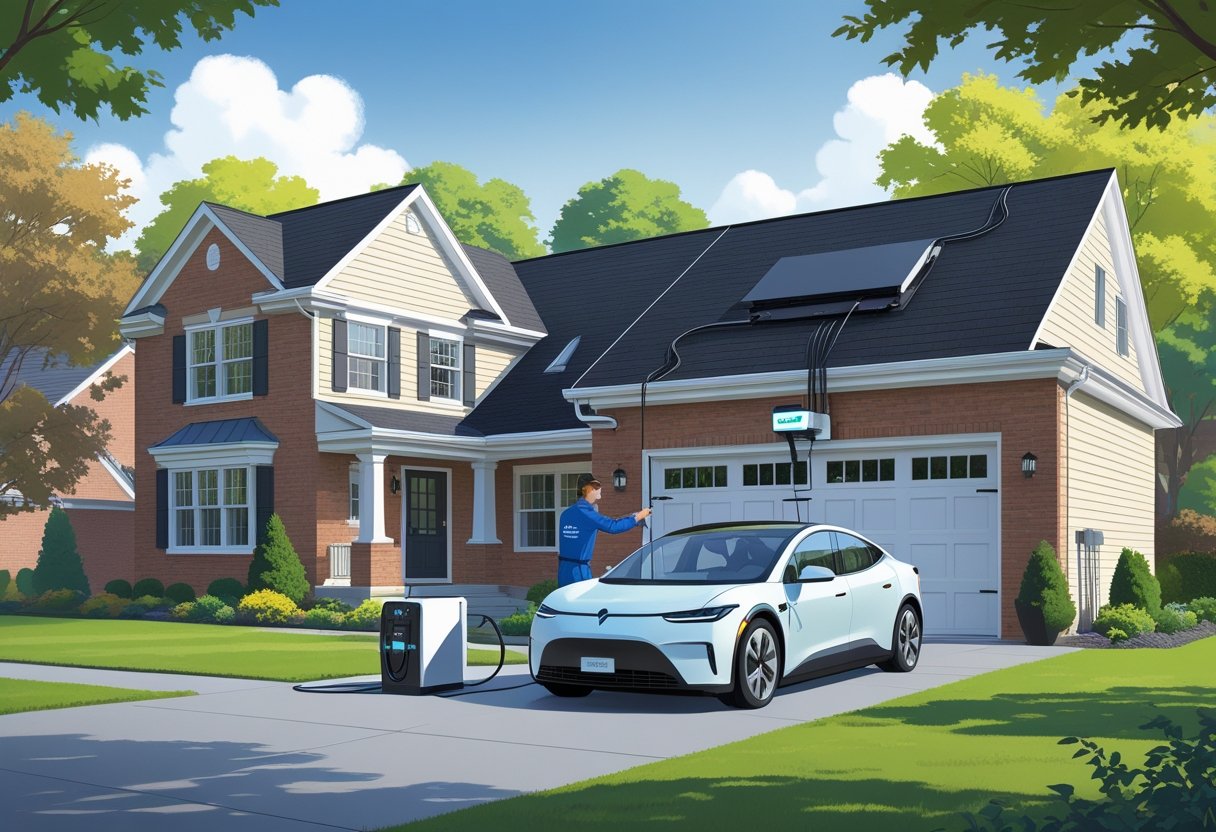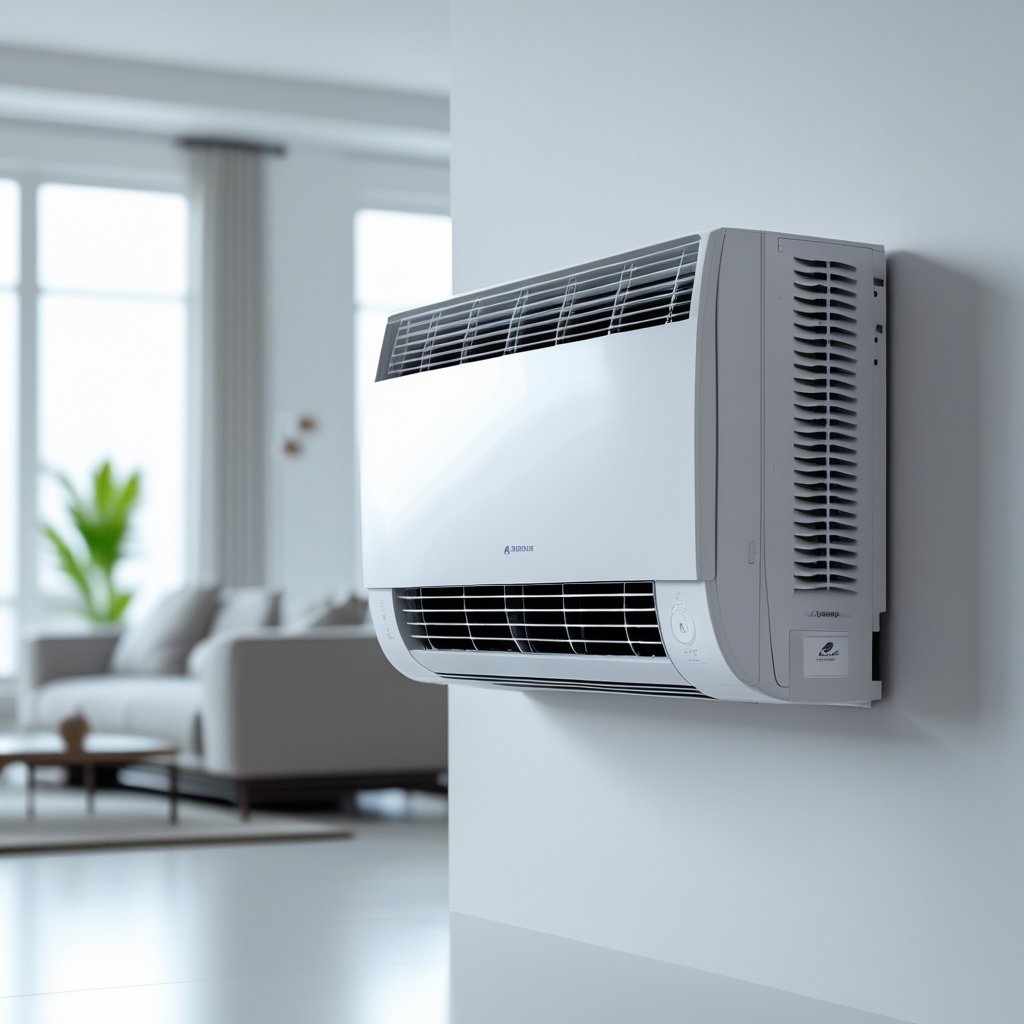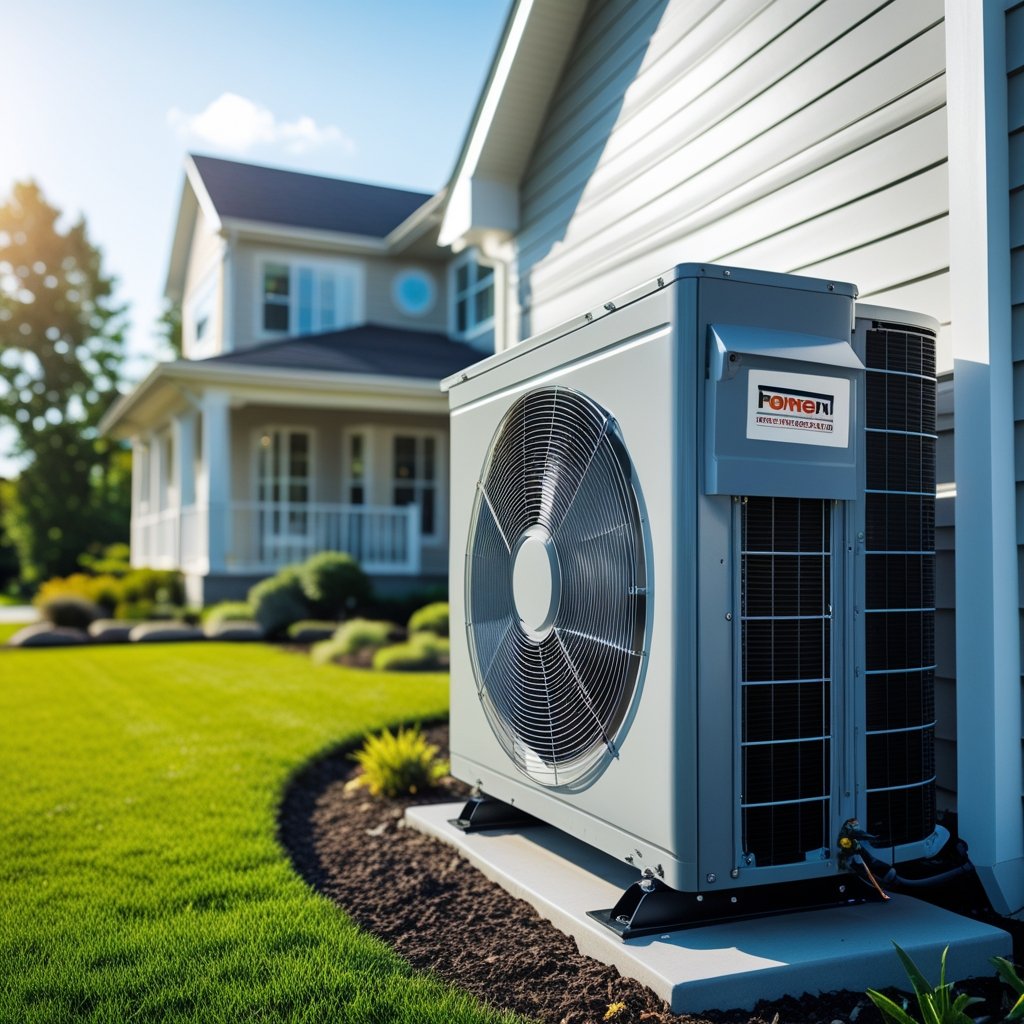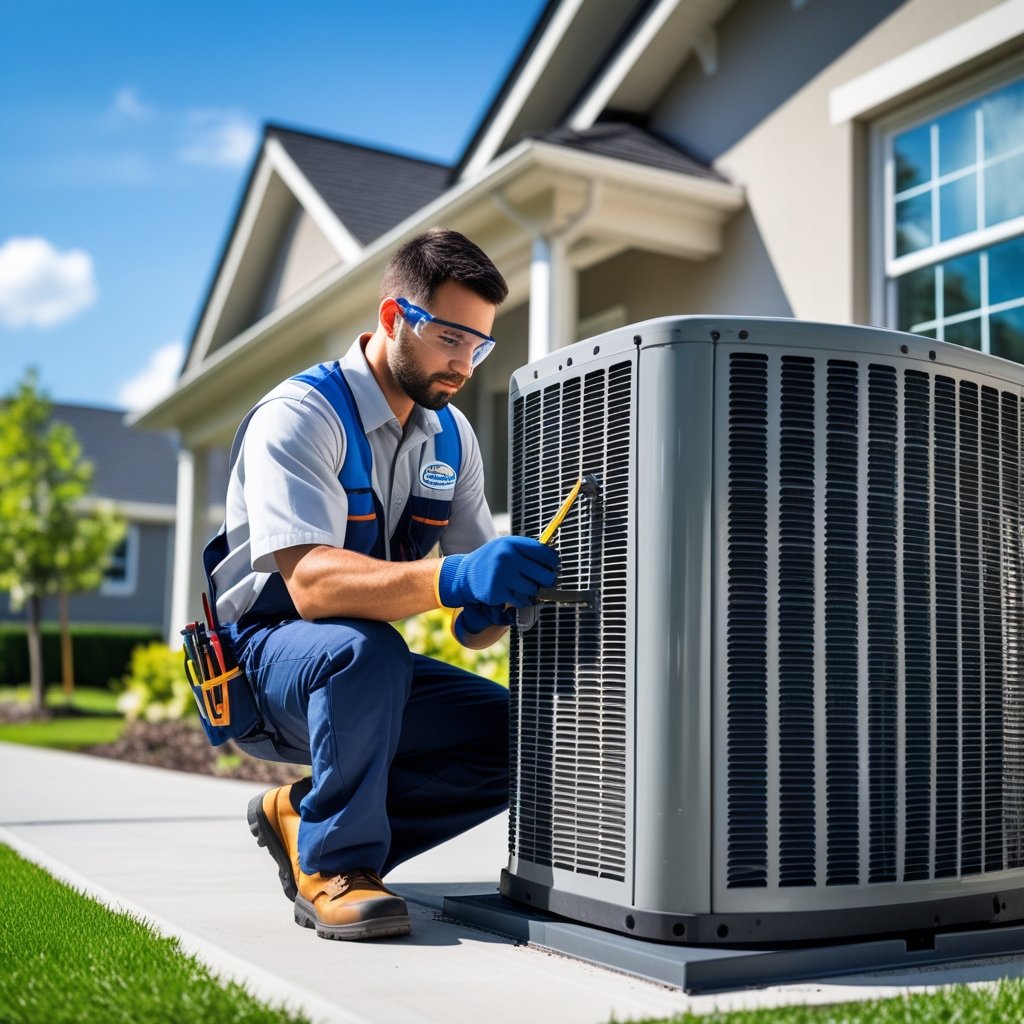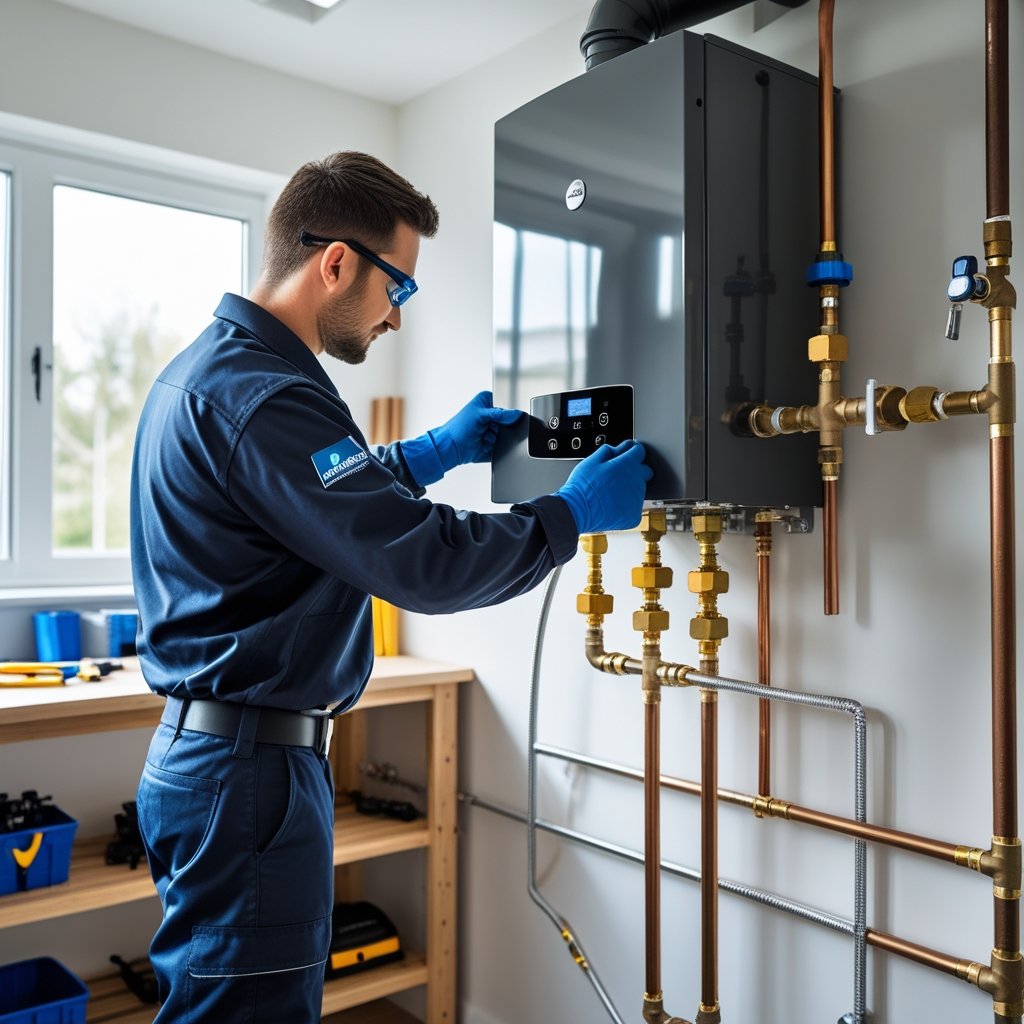If you’re considering the convenience of charging your electric vehicle at home, installing an EV charger is a smart choice. Many Pennsylvania homeowners may already have the necessary wiring in place, making installation both simple and cost-effective. With the right preparation, you can enjoy the benefits of charging your vehicle overnight, ensuring it’s ready for your daily commute.
At Leo Kob Co., we understand the needs of residents in South Central Pennsylvania and are here to guide you through the process. From selecting the right charger to professional installation, our experienced team ensures everything is done safely and efficiently. Home charging not only saves time but also offers potential savings on your energy bills in the long run.
Choosing to install an EV charger at home enhances your electric vehicle experience. You gain convenience and peace of mind, knowing that your car is charged and ready when you need it most. Trust Leo Kob Co. to provide quality service at a fair price as you make this investment in your home.
Benefits of EV Charger Installation at Home
Installing an EV charger at home offers numerous advantages that can enhance your daily routine and save you money. You benefit from the convenience of charging your vehicle at any time, cost savings compared to public stations, and even a potential increase in your property's value.
Convenience and Time Savings
Having an electric car charger at home allows you to charge your vehicle overnight or during breaks, eliminating the need to visit crowded public charging stations. This flexibility means you can wake up to a fully charged car every morning, ready for your day.
Imagine never searching for a charging station or waiting in line again. With your own home charger, your vehicle is always ready when you are. Plus, the installation process simplifies your routine, especially for busy schedules.
Cost Efficiency Compared to Public Charging
Charging your electric vehicle at home usually proves to be less expensive than using public charging stations. The average energy cost in the U.S. is about $0.17 per kilowatt-hour (kWh), while public stations often charge between $0.30 and $0.60 per kWh.
By installing a home charger, you can significantly lower your monthly charging costs. This setup not only provides savings on energy but also reduces the frequent costs associated with public charging. At Leo Kob Co., we ensure your installation is done with high standards for efficiency.
Increased Property Value
Investing in a home EV charging station can elevate your property's value, making it more attractive to potential buyers. As electric vehicles become increasingly popular, homebuyers often see a built-in charger as a desirable feature.
Moreover, many home appraisals now consider the availability of charging infrastructure, which can positively impact overall property assessments. By choosing to install an EV charger with Leo Kob Co., you’re enhancing your home’s appeal and modernizing your living space.
Types of Home EV Chargers
Understanding the different types of home EV chargers can help you select the best option for your electric vehicle. Each type varies in charging speed and installation requirements, making it essential to assess your specific needs and usage.
Level 1 Chargers Overview
Level 1 chargers are standard 120V outlets which can be found in most homes. They require no special installation, making them an accessible option for many homeowners. Charging time is slower, taking around 8-12 hours to fully charge an EV.
While convenient, Level 1 chargers may not be suitable for daily drivers. If you frequently use your EV for long distances, this option might not meet your needs. Despite their limitations, they can work well for overnight charging if your driving range is modest.
Level 2 Chargers and 240V Outlets
Level 2 chargers operate on 240V outlets, allowing faster charging times—typically 4-6 hours for a full charge. Installing a Level 2 charger usually requires professional help due to the need for electrical upgrades. This option is highly beneficial for daily drivers or those with longer commutes.
You can install a Level 2 charger in your garage or near your parking area. The upfront costs may be higher, but the efficiency and convenience often justify the investment. Companies like Leo Kob Co. can assist with your Level 2 charging installation, ensuring compliance with local codes and safety standards.
DC Fast Chargers for Residential Use
DC fast chargers are primarily designed for commercial settings but can be installed at home if you have a unique situation. They deliver rapid charging, reaching an 80% charge in about 30 minutes. However, this type of charger requires professional installation and significant electrical capacity.
Due to their high cost and special requirements, they aren’t ideal for most residential scenarios. However, if you have a fleet of vehicles or require quick turnaround times, a DC fast charger might be worth considering. Always consult professionals for proper installation and to evaluate your home's electrical capacity.
The EV Charger Installation Process in Pennsylvania
Installing an EV charger at home involves several critical steps that ensure safety, compliance, and functionality. Understanding each part of the process will help you prepare for a successful installation.
Assessing Electrical Service Requirements
Before installation, a licensed electrician will assess your current electrical service. This assessment includes checking your electrical panel to confirm it can handle the additional load of an EV charger.
You need to consider the amperage rating of your home's electrical system. Most home chargers require a circuit of 30 to 50 amps. If your panel cannot support this, a panel upgrade might be necessary. Additionally, the location of the charger in relation to your electrical panel can affect installation complexity.
Understanding your home's electrical capacity helps you avoid unexpected costs and ensures compliance with Pennsylvania’s electrical codes.
Permits and Inspections in Pennsylvania
In Pennsylvania, the installation of an EV charger usually requires permits and inspections. The process begins with obtaining the necessary building and electrical permits from your local municipality.
These permits ensure your installation meets all safety standards and regulations. Once the installation is complete, an inspection by a qualified inspector will confirm everything complies with local codes.
Not obtaining the proper permits can lead to fines or required changes, so consult with your installer about the permit requirements in your area.
Selecting a Professional Installer
Choosing a knowledgeable professional for your EV charger installation is crucial. Look for an electrician with experience specifically in EV charger installations to ensure safety and compliance.
Your installer should also be familiar with the requirements for the Pennsylvania utility incentives available for EV charger installations. Companies like Leo Kob Co. offer seasoned professionals who can guide you through your options.
Request quotes from multiple installers and verify their licensing and insurance. This step protects you and assures quality workmanship.
Typical Installation Timeline
The timeline for EV charger installation can vary based on your specific circumstances. Typically, you can expect the following:
- Site Assessment: 1-2 days for evaluation.
- Permit Wait Time: Up to 2 weeks depending on local regulations.
- Installation Time: 1-3 days for the actual installation of the charging station.
- Final Inspection: Usually scheduled within a week after installation.
Overall, plan for around three to six weeks from the initial assessment to the completed installation. Understanding this timeline helps you stay informed and prepared for each step of the process.
How to Choose the Right EV Charger for Your Home
Selecting the right EV charger for your home involves understanding compatibility with your electric vehicle, exploring top brands, and deciding on the number of charging stations you need.
Compatibility with Electric Vehicles
Compatibility is crucial when choosing an EV charger. Most electric vehicles (EVs) use a standard connector, but it's wise to verify with your vehicle's manufacturer.
Level 2 chargers are generally the best option for home installation as they provide faster charging compared to Level 1 chargers, which use regular 110-volt outlets.
To streamline your decision, consider the following:
- Connector Types: Most EVs in the U.S. use a J1772 connector for Level 2 chargers.
- Charging Speed: Level 2 chargers typically add 12 to 60 miles of range per hour.
- Power Requirements: Make sure your electrical panel can support the charger's amperage without overloading your system. Working with professionals from Leo Kob Co. can ensure safe installation and compatibility.
Top Brands: ChargePoint and Other Options
ChargePoint is a well-regarded brand known for reliable home EV chargers. They offer a robust range of options, catering to different charging speeds and vehicle needs.
Other notable brands include:
- Genie: Affordable options that balance features and performance.
- ClipperCreek: Known for durability and simple installation.
- Bosch: Offers compact chargers perfect for smaller spaces.
Consider user reviews and warranties to find a product that fits your needs. Installation by a certified contractor like Leo Kob Co. can enhance safety and functionality, ensuring your home EV charger works efficiently right from the start.
Choosing Between Single and Multiple Charging Stations
Decide whether a single charging station suffices or if you need multiple units, especially if you have more than one electric vehicle.
A single charging station may be adequate if you primarily charge overnight. However, having multiple chargers can significantly reduce downtime for families with multiple EVs.
Factors to consider include:
- Charging Schedule: Assess your daily driving habits and charging needs.
- Home Infrastructure: Evaluate your available electrical service and panel capacity.
- Future Needs: If you plan to expand your electric vehicle lineup, consider future-proofing with additional outlets.
By understanding your needs and consulting professionals, you can confidently choose the right EV charger for your home.
Cost, Rebates, and Incentives for EV Charger Installation
Understanding the financial aspects of EV charger installation can significantly impact your decision. The cost, along with available rebates and incentives, can provide substantial savings for homeowners looking to install charging stations for electric vehicles.
Upfront and Ongoing Costs
The initial cost for installing an EV charger at home can range from $500 to $2,500 or more. This depends on the charger type and installation complexity. Level 2 chargers, commonly preferred for home use, fall within this range.
Additionally, you need to account for installation labor, which can add $300 to $1,000. Contact a professional like Leo Kob Co. to ensure quality and compliance with local codes.
Ongoing costs include your electricity bill, as charging an electric vehicle typically costs between $0.10 to $0.30 per kWh. This translates to about $5 to $15 for a full charge, depending on your local rates and the vehicle's battery size.
Pennsylvania-Specific Rebates and Credits
Pennsylvania offers various rebates to ease the financial burden of installing EV chargers. Programs include the Adams U-Shift Charging Station Bill Credit, which provides a rebate of $300 per charger. This can cover up to 100% of material costs for Level 2 chargers, making it an attractive option for residents.
Additionally, homeowners may benefit from federal tax credits for EV charger installation, which can return 30% of the installation costs, up to $1,000 per charging port. Utilize these incentives to make your home's EV charging stations more affordable.
For more information on Pennsylvania rebates, refer to Pennsylvania Rebates for Residential EV Chargers.
Potential Savings Over Time
Beyond initial incentives, installing an EV charger can result in long-term savings. Electric vehicles typically have lower fueling costs compared to gasoline vehicles. Over time, using home charging can save you an estimated $1,000 to $2,000 annually in fuel costs.
Moreover, financing options and local incentives mean you may recover your installation costs within a few years. Additionally, as gas prices fluctuate, the stability of electric rates can be a significant advantage.
Consider the comprehensive savings potential of transitioning to electric vehicle charging at home through services provided by Leo Kob Co. and available state and federal programs.
Living with a Home EV Charger in Pennsylvania
Having a home EV charger in Pennsylvania offers numerous conveniences and responsibilities. Understanding how to maintain your charging station, troubleshoot common issues, and apply knowledge specific to your region can enhance your experience as an electric vehicle owner.
Charging Station Maintenance and Safety
Regular maintenance of your home charging station is crucial for safety and efficiency. Start by inspecting the charger and its cables for any signs of wear or damage. Keep the area around the charger clean and free from debris.
Key Maintenance Tips:
- Check Connections: Ensure all connections are tight and secure.
- Inspect the Charger: Look for cracks or signs of corrosion.
- Keep Dry: Protect the charger from moisture, especially during rain.
Follow your manufacturer's guidelines for periodic servicing. If you encounter persistent issues, consider consulting with professionals like Leo Kob Co., who specialize in EV charger installation and maintenance.
Support and Troubleshooting Resources
If you experience any problems with your home EV charger, various resources are available. Start by consulting the user manual for troubleshooting steps tailored to your specific model.
Helpful Resources:
- Manufacturer Support: Many companies offer online chat or phone support for troubleshooting.
- Community Forums: Local EV groups often share insights or solutions to common issues.
- Professional Assistance: For complex problems, Leo Kob Co. can provide expert advice and service.
Keeping your charger operational is essential for the convenience of charging your vehicle at home.
Regional Insights: Harrisburg and Surrounding Areas
In Harrisburg, the use of home EV chargers has increased with the rise in electric vehicle ownership. The local government supports EV transitions, making it an ideal region for installation. Public charging stations are also growing, but having a personal charger ensures you are never reliant on availability.
Considerations:
- Local Rebates: Check for local incentives that could offset installation costs.
- Power Utility Programs: Some utility companies offer discounts or programs focusing on charging at off-peak hours.
Understanding these local advantages can enhance your overall experience as an EV owner.
Real-World Example: Chevy Bolt Charging
The Chevy Bolt is a popular choice among electric vehicles, offering impressive range and performance. When charging at home, a Level 2 charger can fully recharge the Bolt overnight, making it hassle-free for daily use.
Charging Approach:
- Home Configuration: A dedicated circuit may be necessary to ensure optimal performance.
- Utilization of Rebates: Check for Pennsylvania rebates that can help manage installation expenses.
Investing in a home charging solution provides added comfort and efficiency for Chevy Bolt owners, enabling you to charge conveniently from your garage.
Frequently Asked Questions
Installing an EV charger at home involves various considerations, including electrical requirements, costs, permits, and recommended models. Below are some frequently asked questions to help guide you through the process.
What are the electrical requirements for installing an EV charger at home in Pennsylvania?
To install a Level 2 EV charger, you need a dedicated 240-volt circuit. The circuit generally requires a 40-50 amp breaker. An electrician will assess your electrical panel's capacity to ensure it can handle the additional load without risking overload.
Is there a rebate program available for EV charger installation in PA?
Yes, Pennsylvania offers several rebate programs for EV charger installation. Programs may vary by utility provider, so it's advisable to check with your local utility company for specific options and eligibility criteria to maximize your savings.
How much does it typically cost to install an EV charger in Pennsylvania homes?
The cost for installing an EV charger in Pennsylvania generally ranges from $500 to $2,000. Factors impacting the cost include the charger type, electrical upgrades, and installation complexity. Careful planning can help you find a solution that fits your budget.
What are the recommended EV charger models for residential use in PA?
For residential use in Pennsylvania, Level 2 chargers are highly recommended due to their faster charging capabilities. Popular models include the JuiceBox, ChargePoint Home Flex, and the Bosch Level 2 EV Charger. These models offer various features catering to both performance and convenience.
Who are the certified electricians or companies for EV charger installations in Pennsylvania?
Choosing a certified electrician or a reputable company is crucial for safe and efficient installation. Look for professionals who are licensed and have experience in EV charger installation. You can consider contracting with Leo Kob Co., a trusted name in South Central Pennsylvania since 1904.
What permits are needed for residential EV charger installation in PA?
Installing a Level 2 EV charger at home typically requires a building permit. You may need to submit plans to your local municipality. Permit costs generally range from $50 to $200, depending on your area. It's wise to check local regulations to ensure compliance.

